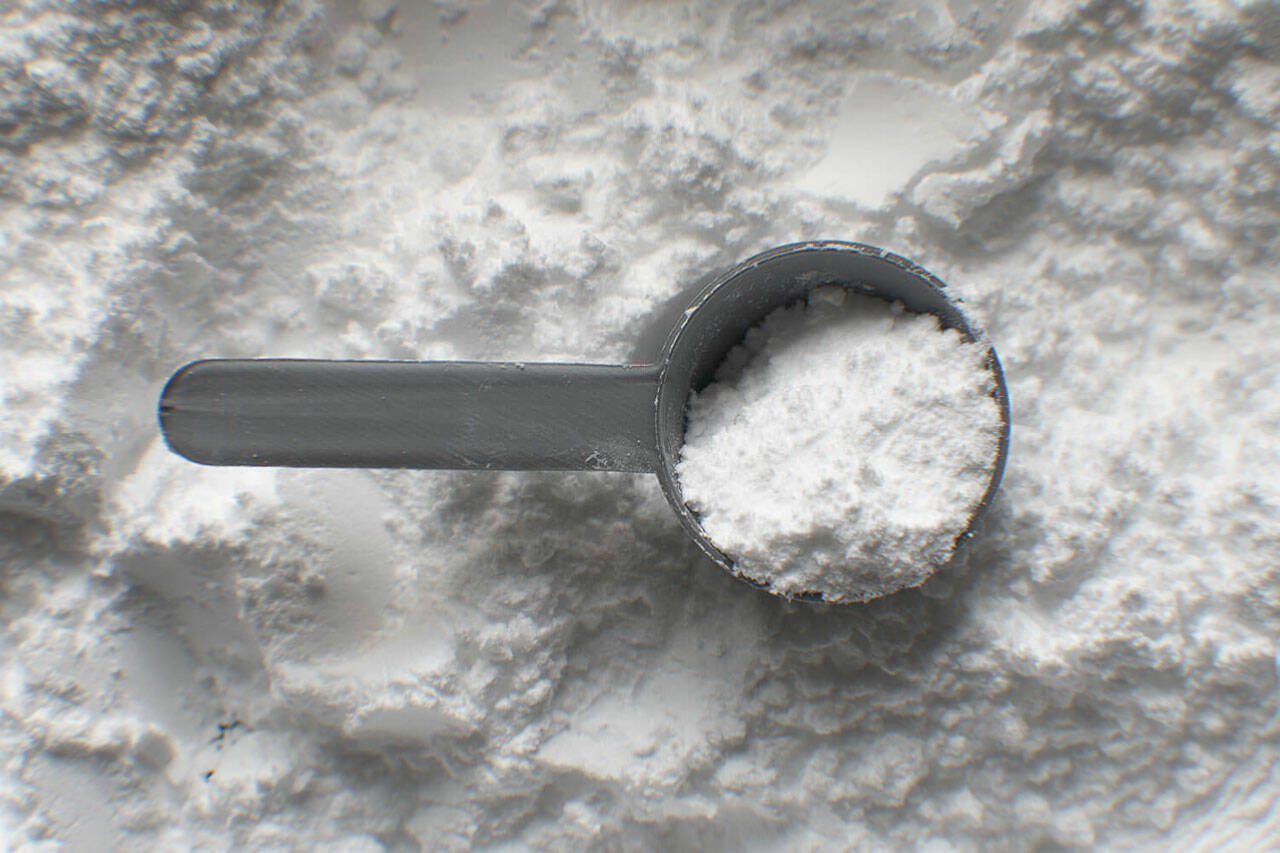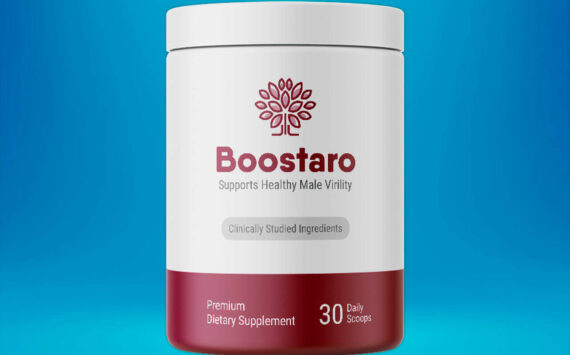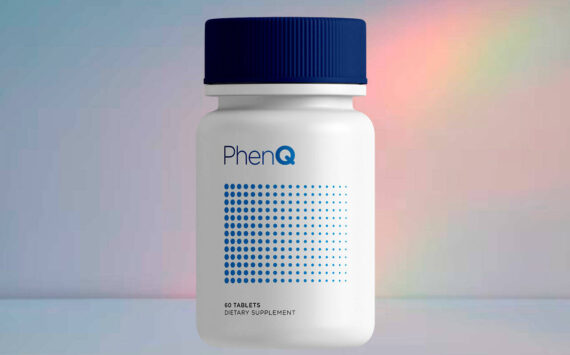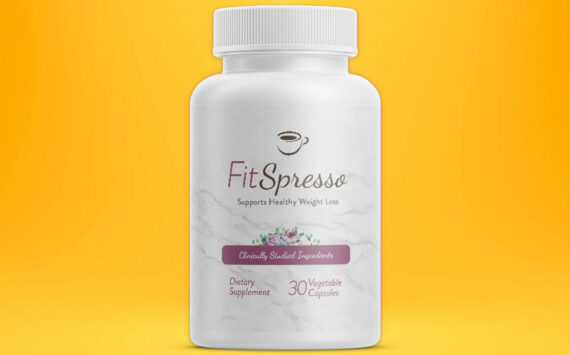Creatine supplements for vegans is a hot topic and it’s actually a game-changer for people who have adopted a vegan diet.
Creatine is one of the most popular ergogenic aids for exercisers and athletes no matter what their diet. Research shows that creatine supplementation boosts concentrations of intramuscular creatine while promoting improvements in workout performance and enhancing adaptations in training.
Studies also show that creatine supplementation can hasten recovery from exercise, guard against injuries, and boost thermoregulation. It can also help with rehab and concussion neuro-protection.
The molecule adenosine triphosphate (ATP) holds energy inside the cells, driving many key processes, like contractions of the muscle. The adenosine triphosphate phosphocreatine, also known as ATP-PC for short, is a system that gives us our largest energy pathway for short and explosive bouts of exercise.
It’s got the highest rate of ATP production and also has the greatest power potential because it draws energy from intramuscular stores of phosphocreatine (PCr) and ATP. The energy that can be gained from this is limited, though, kicking in for only the first seven seconds of a workout.
When PCr stores start to deplete when engaging in high-intensity exercise, we can’t resynthesise ATP at the fast rate our bodies need it, which is what reduces our exercise performance.
The key factor in replenishing ATP both during and after exercise is how much stored PCr is in the muscle. Boosting how much intramuscular PCr we have stored is important when delaying PCr depletion, staving off fatigue, and performing with higher intensity for longer periods of time. Creatine supplementation can help us achieve this goal.
While the ATP-PC system contributes greatly to high-intensity efforts, it is also tasked with giving energy for lower-intensity tasks as well.
Creatine Supplements for Vegans
Creatine, an amino acid compound, can be found in foods like seafood, red meat, and poultry. That’s why vegans or vegetarians have diets that decrease muscle creatine stores and thus have lower levels of creatine in their muscle tissue and blood.
The research reveals the benefits of creatine supplements for vegans due to their low stores of pre-existing muscle creatine. One study found that supplemental creatine boosts previously-low creatine stores within vegetarians. This group showed big improvements in fat-free body mass, optimal strength and type II muscle fibers area when compared to people who eat meat.
Thus, creatine supplementation is a beneficial ergogenic aid for athletes and exercisers who are vegans. It could also compensate for decreased muscle creatine levels resulting from this lifestyle choice.
Supplementation: The Protocols
Most stored creatine is in the skeletal muscle, with small amounts in the brain and testes. About one to two percent of intramuscular creatine gets degraded into creatinine, which is a metabolic by-product, and expelled through the urine. This is why it is recommended to replenish those stores with one to three grams of creatine per day.
Omnivores get half this daily requirement from just their diet. For instance, one pound of salmon or beef contains one to two grams of creatine. In this case, creatine stores are saturated at about 60 to 80 percent. Creatine supplementation should increase phosphocreatine and muscle creatine by 20 to 40 percent. A dose of five grams of creatine monohydrate or 0.3 g/kg of body weight 4 x a day for a week proves to be the most effective method of boosting muscle creatine stores in meat eaters.
After a week’s worth of loading protocol five grams of creatine monohydrate 4x a day, you can maintain those creatine stores through the consumption of three to five grams per day. If you are a larger athlete or exerciser, you may need to increase that to five to 10 grams a day.
Athletes who have a larger body mass and who do intense training may need 10 grams a day of creatine. Some clinical populations may need between 10 and 30 grams a day throughout their lifespans to prevent creatine synthesis deficiencies or achieve a therapeutic effect.
Because vegan diets can reduce muscle creatine stores, vegans should take higher doses than omnivores, supplementing seven to 10 grams four times a day for up to a week, and five to seven grams a day for maintenance.
Taking creatine with carbohydrate and protein may be more effective in achieving greater creatine retention. Once you have elevated your creatine muscle stores, it takes between four and six weeks to return to baseline.
Evidence so far does not suggest that muscle creatine levels will fall below baseline after stopping the consumption of creatine supplements.
Bioavailability
The creatine uptake process involves creatine absorption into the blood after tissue uptake. Blood plasma levels of creatine will peak at 60 minutes after you ingest creatine monohydrate.
Creatine is commonly sold in solid form because of the degradation into creatinine over time. But the conversion of creatine into creatinine in the body’s gastrointestinal tract is small no matter what the transit time, with absorption into blood at nearly 100 percent.
Creatine monohydrate is the most widely studied form of creatine. Manufacturers make many claims about reduced degradation or higher muscle uptake with various different forms of creatine. These can include: creatine serum, creatine citrate, creatine ethyl ester, creatine nitrate, and buffered versions of creatine. But at this time there has been no clinical evidence that supports these claims.
Creatine: Is it Vegan?
Yes, certain types are vegan, such as powdered synthetic creatine. Capsules, however, may contain bovine gelatine. If you are a vegan, you will want to stick with creatine monohydrate.
Ergogenic Value
Many studies show that creatine supplements increase muscle availability of PCr and creatine while improving acute exercise capacity and training adaptations in adolescents, young adults and older individuals. With such training adaptations, we can perform more work as part of sets or sprints to result in better strength increases, greater muscle mass and better performance because of an enhanced quality in training.
After a creatine loading protocol, repetitive exercise or high-intensity training can be increased by 10 to 20% but this will depend on how much muscle PCr has been achieved. While there have been benefits of creatine supplements in both men and women, some studies show that females don’t gain as much strength or muscle mass when they are training. However, there are many benefits of creatine supplements for vegans
When it comes to physical performance measurements, the International Society of Sports Nutrition says that creatine monohydrate is the best ergogenic supplement for athletes looking to boost their high-intensity capacity and increase lean body mass.
Ergogenic Benefits: Creatine Supplementation
- Increase in single and repetitive sprints
- Increase in work performed during sets of muscle contractions
- Increase in strength adaptations and muscle mass
- Enhancements in glycogen synthesis
- Increase in the anaerobic threshold
- Enhancement of aerobic capacity
- Increase in work capacity
- Faster recovery times
- Better training tolerance
Enhanced Recovery
In addition to the ergogenic effect, creatine supplementation helps people recover from their intense training sessions. For instance, research shows that adding creatine loading to your glycogen loading protocol before engaging in intense training enhances glycogen replenishment than if you were to only glycogen load alone. This is crucial for athletes who tend to deplete large stores of muscle glycogen when training or competing. That’s because glycogen restoration is an important factor when it comes to the promotion of recovery and prevention of overtraining.
The benefits of creatine supplementation can also be seen in marathon runners who load with creatine before completing a 30km race. This study revealed that those who supplemented with creatine had a decrease in inflammatory markers, with reduced muscle soreness compared to the control groups.
On top of that, muscle recovery and damage can be improved after creatine supplementation. Those in this study had greater strength in concentric and isometric knee extension during periods of recovery from exercise-induced damage compared with control groups.
Therefore, creatine supplements for vegans can boost glycogen loading, while accumulating less inflammation and tolerating higher volumes of training, resulting in better rates of recovery.
Injury Prevention
Studies about the effects of creatine supplements on injury prevention as part of training or competition report no effect, while others say there is a reduced incidence of musculoskeletal injury, muscle cramping or dehydration.
One study of American Collegiate football players who took 16 grams a day of creatine for five days and five to 10 grams a day for the next 21 months showed no real difference in markers when it came to urine volume, catabolism, and electrolytes in comparison to people who didn’t take creatine. Other studies show that muscle cramping, dehydration and heat illness, muscle strains, muscle tightness, overall injuries may be reduced with creatine supplements.
No evidence out there says that creatine supplementation boosts the rate of musculoskeletal injury, muscle cramps or dehydration, or that creatine supplements promote significant side effects in those who used it for up to three years. Studies show that those who supplement using creatine could witness reduced injuries compared with those who don’t.
This is why creatine supplementation in vegans could prevent a wide range of injuries, with no health side effects.
Brain Function
While upwards of 90 percent of our creatine store rests in skeletal muscle, evidence shows the large role of the creatine system within our brains. Higher resting creatine levels can improve short-term memory as well as intelligence and reasoning, while enhancing performance in cognitive tasks like recognition memory.
One Australian study looked at how creatine monohydrate supplementation affected the brain performance of vegetarian and vegan students after conducting many cognitive tests.
The subjects were given a daily dose of five grams of creatine monohydrate OR placebos for six weeks. After a wash-out period of about six weeks, the groups were reversed.
Cognitive tests requiring a high processing speed were given at the start of the experiment and then again after each six-week period. Results showed that taking creatine boosted performance in those cognitive tests, especially in one test where they had to listen to number sequences and then recite them backwards. The test demands active memory skills and short-term storage, which both take a lot of energy.
Studies suggest that vegan creatine supplementation results in big cognitive benefits that lead to better cognitive performance in various settings.
Creatine: The Safety
Creatine monohydrate became popular in the 1990s. Since then, there have been more than 1,000 studies conducted on its safety. Studies have been done in healthy and diseased populations, from babies to senior citizens, given at doses of 0.3 to 0.8 g/kg/day for up to five years. They have all shown that creatine supplements have no adverse health risks.
One report on ER visits for side effects with dietary supplements revealed that creatine was not mentioned often and was not connected with a large number or consistent sequence of adverse events.
In the same vein, unsupported claims with no causality assessments have since been debunked in scientific studies showing that creatine supplementation won’t increase the rate of musculoskeletal injuries, muscle cramps, dehydration, or gastrointestinal disturbance.
Studies also refute claims that creatine supplementation leads to renal dysfunction or that it comes with long-term damaging effects. Such studies support the use of creatine to decrease the incidence of such claims.
Studies about performance-related outcomes in teens, young people and older adults show many ergogenic benefits of creatine supplementation and little to no significant side effects. This shows that creatine monohydrate can be well-tolerated by most and that it is safe to use as a dietary supplement. Some experts suggest three grams a day of creatine should be used to support general health.
While product labels have warnings that those under 18 years of age should not take creatine, this seems to be just a legal precaution with no scientific evidence to say that kids or teens shouldn’t supplement with creatine. Studies show that infants, toddlers and teens may benefit from the consumption of creatine, and that it is a safe and acceptable nutritional method for young athletes.
In Conclusion
- Vegans have low levels of creatine in their blood and muscle tissues because they don’t have meat and dairy in their natural diet.
- Creatine monohydrate is the most common and effective form of creatine when it comes to muscle uptake and high-intensity exercises.
- Creatine monohydrate is a beneficial supplement for athletes looking to boost their high-intensity workouts as well as lean body mass.
- Supplements of creatine monohydrate are safe, and have many benefits in both healthy and diseased populations, with dosages for all ages being safe up to 30 grams a day for five years.
- Creatine supplementation in kids and teens is acceptable under supervision, and can be a safe alternative to dangerous performance-enhancing drugs.
- Safety warnings cautioning against use by those under 18 are unnecessary due to creatine’s proven safety.
- Adding carbohydrate or carbohydrate protein to creatine supplements boosts creatine muscular uptake.
- To increase muscle creatine stores in vegans, they should consume seven to 10 grams of creatine monohydrate 4x times a day for up to seven days, then a maintenance dose of five to seven grams a day.
- Study participants have taken up to 56 grams a day for many years with no adverse effects.
- Powdered synthetic creatine is the best form of creatine supplementation for vegans.








